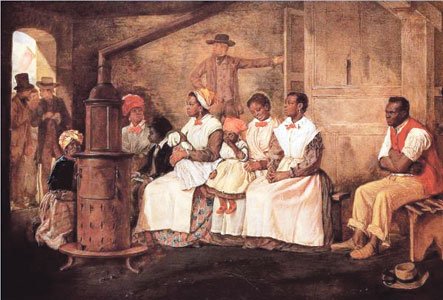Until the late 20th century, African-Americans found it difficult to have obituaries published in newspapers around the country. In modern times, some blacks cringe over the cost for publication of memorials for their loved ones because the charges associated with obituaries often limit the length of the document and prohibit the publishing of a complete tribute to the deceased.
However, two organizations, including one in Virginia and another in Utah, have established a method in which obscure stories of thousands of deceased African-Americans are finding their way to the Internet.
“We work with large national, state and municipal archives to make large collections like censuses and vital records more available online to the masses,” said Paul G. Nauta the public affairs manager for FamilySearch International in Utah, an organization that boasts being the largest genealogy organization in the world. “There are so many smaller collections, like the Virginia African-American Funeral Programs, that fill in the blanks of our family members’ lives and provide incredibly rich detail and context that makes them much more personal and real to us.”
The Virginia African-American Funeral Programs project began five years ago as a collaborative initiative between FamilySearch and the Tappahannock-based Middle Peninsula African-American Genealogical and Historical Society (MPAAGHS) of Virginia.
In a news release, officials said more than 10,000 funeral programs have been digitized, and over 200,000 names of the deceased persons and their families and friends mentioned in the programs were linked by volunteers and published in a free searchable database at the FamilySearch website.
“Funeral programs are a veritable treasure trove of family history information because they provide such a wealth of information about the deceased,” Bessida Cauthorne White, president of MPAAGHS, said in an email. “A typical funeral program includes birth and death dates and places and the names of parents, spouse, children, and other relatives. The biographies included on most of the programs, are mini-histories that add a glimpse of the decedent’s personality by disclosing schools attended, work history, church and organization affiliation, hobbies, and accomplishments.”
Also, funeral programs may contain multiple photographs of the deceased and family members.
“We often use the printed copies of the funeral programs to answer family history inquiries,” White said. “To be able to finally search the programs electronically will be tremendous.”
With regards to the length of the obituary that could make it costly to publish, funeral programs don’t have such limitations, according to White.
“You get a much richer picture of the deceased person,” White said.
To date, FamilySearch has published over three billion historical records online in free collections from over 100 countries. It continues to digitize and publish about 400 million new records online for free each year, according to Nauta.
The responses from families who are able to connect to both their living relatives as well as their deceased ancestors from these types of free collections online continue to swell with growing interest in one’s roots,” he said.
Nauta says that satisfied and happy online patrons are continually posting and sharing the joys of their discoveries from free collections like these online with other family members and friends across the various social media.
“The funeral programs are wonderful as a source because they share very personally rich information,” he said. “It’s common to see a photo of the deceased and easy to discover their life story through the information the funeral programs usually disclose, such as a broad range of family relationships stemming multiple generations in all directions, their profession, personal interests, hobbies, lifetime highlights, as well as some lowlights, that help personify the decedent and endear them to you.”
For more information about the program, visit: www.mpaagenealogicalsociety.org or www.familysearch.org.
